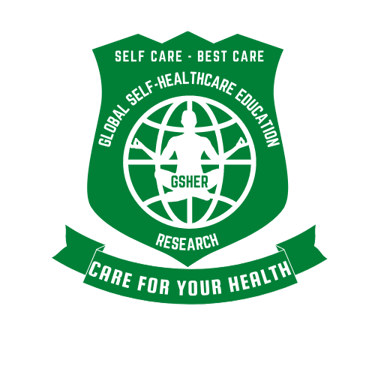Transforming Health from the Ground Up: How Self-Healthcare Educators Will Change the Future
ସାରା ବିଶ୍ବରେ ସ୍ୱାସ୍ଥ୍ଯ ସେବା ରେ ପରିବର୍ତ୍ତନ ପାଇଁ ସ୍ୱୟଂ-ସ୍ୱାସ୍ଥ୍ଯସେବକ ମାନଙ୍କର ଆବଶ୍ୟକତା। .
TEAM GSHER
9/23/20245 min read


Change, especially when it comes to health behaviors, is often met with resistance. Throughout history, people have clung to familiar habits and routines, even when better alternatives are available. More often than not, real change happens only when it is either forced upon them or made irresistibly beneficial. Whether through strict policies, public health campaigns, or incentivized programs, societal transformation in health has always required a proactive push. The role of Self Healthcare Educators, in this context, is to facilitate a similar shift by creating an urgent need for preventive health practices and self-care.
Despite the growing need for better healthcare and disease prevention, many individuals still view healthcare as something to be sought only in times of illness. This reactive approach to health is deeply ingrained in societies, where people rely on doctors, hospitals, and medications only after symptoms appear. Yet, the rising burden of chronic diseases—such as diabetes, heart disease, and hypertension—shows that this model is unsustainable. Instead of waiting for illnesses to manifest, we need to shift towards a proactive, preventive approach.
However, such a massive shift in thinking doesn’t happen on its own. It requires the collective effort of health advocates and educators who can drive home the importance of self-care. The Global Self Healthcare Education and Research (GSHER) initiative recognizes this gap and aims to bridge it by training Self Healthcare Educators who will instill the principles of self-healthcare in every home and institution.
History's Lessons: Forced Change vs. Incentivized Change
Looking back, history provides ample examples of how major societal shifts in health were achieved through two primary methods: forceful imposition and incentivized change.
1. Forced Change:
Eradication of Smallpox: One of the greatest triumphs in public health was the global eradication of smallpox. This was achieved through mandatory vaccination programs and strict quarantine measures, often leaving individuals with no choice but to comply. The global effort, led by governments and international health bodies, was not voluntary—it was necessary. People accepted the change because it was enforced for the greater good.
Malaria Control: Similarly, the control of malaria involved imposing strict measures like indoor spraying of DDT, draining standing water, and distributing insecticide-treated bed nets. These actions were often met with resistance at first but became accepted norms because they were pushed as part of a concerted public health strategy.
2. Incentivized Change:
Midday Meal Program: A contrasting example is India’s Midday Meal Scheme, which provides free nutritious meals to school children. This program didn’t force children to eat healthier but instead offered a direct incentive that encouraged parents to send their kids to school. Over time, it significantly improved child nutrition and school attendance rates.
Maternal Health Screening: Another example of incentivized change is the screening of pregnant women for potential health complications. By making these services accessible and free, governments helped reduce maternal mortality rates without forcing participation—pregnant women were motivated by the obvious benefits.
These examples highlight two ways of driving societal change: one where compliance is mandatory and one where participation is incentivized. Both methods have been instrumental in achieving health outcomes. The same principles can be applied to the self-healthcare movement, where the focus is on creating an internalized sense of responsibility for one’s own health.
The Need for Self Healthcare Education and Educators:
Despite the evidence that self-care is essential, many people believe they don’t need it. This mindset presents a significant barrier to the adoption of preventive health measures. Here lies the critical role of Self Healthcare Educators—individuals who will actively work to create the need for this massive shift in perspective.
These educators are not just teaching health practices; they are shaping a new understanding of what health means. Rather than being a reactive measure for when we are sick, health must be seen as an ongoing, proactive responsibility.
Self Healthcare Educators will embed this paradigm in the daily lives of individuals, families, and communities, much like public health campaigns of the past did for vaccination and nutrition programs.
How Self-Healthcare Educators Can Create Change:
1. Personalized Education:
People are more likely to adopt change when they see how it benefits them personally. Self Healthcare Educators can create tailored health plans based on an individual's lifestyle, making self-care more relevant and practical. By showing immediate benefits such as improved energy, mood, and even financial savings, they can create a direct link between proactive health practices and personal well-being.
2. Awareness Campaigns:
By breaking down complex health concepts—like cellular health, stress management, or nutrition—into easy-to-understand language, educators can demystify self-care. The goal is to shift people's thinking from "healthcare is for when I’m sick" to "healthcare is about staying well."
3. Building Community Trust:
Change often starts when trusted figures within the community advocate for it. Self Healthcare Educators can become those trusted figures by consistently engaging with families, workplaces, and institutions, fostering relationships that lead to long-term behavior changes.
4. Creating a Sense of Urgency:
Sometimes, a little pressure is necessary to drive change. Self Healthcare Educators can highlight the consequences of inaction—chronic diseases, healthcare costs, and reduced quality of life. This will create a greater sense of urgency and a need for proactive self-care.
5. Practical Integration of Healthy Habits:
Small, sustainable changes can lead to big results. Self Healthcare Educators can offer practical tips to integrate self-care into daily life, making health maintenance feel more natural and less burdensome.
Shifting the Paradigm
Like the successful health interventions of the past, the role of Self Healthcare Educators is to shift the mindset from reactive healthcare to preventive self-care. Just as the eradication of smallpox required mandatory action and the Midday Meal Scheme incentivized participation, the self-healthcare movement will require a combination of both strategies.
Some individuals may only embrace self-care when they see the tangible benefits, while others might need a more direct push toward adopting healthier habits.
Through consistent education, community engagement, and practical support, Self Healthcare Educators will cultivate a new culture of health. This shift will reduce the burden on healthcare systems and empower individuals to take control of their own well-being. The result will be a society where health is not just the absence of disease but a state of complete well-being, achieved through proactive, daily care.
The key to reducing the global disease burden lies not in creating more doctors or hospitals but in creating more Self Healthcare Educators—those who will guide people to make health a priority at the grassroots level. Just as history has shown that change is possible through persistent effort and strategic interventions, GSHER's vision of creating Self Healthcare Educators will gradually lead to a healthier, more self-reliant society.
Here’s how GSHER intends to drive this transformation Journey:
1. Training Self Healthcare Educators:
GSHER is committed to creating and deploying Self Healthcare Educators who act as grassroots agents of change. These educators are trained in various disciplines, including cellular health, therapeutic nutrition, mental wellness, and stress management. Their mission is to instill healthy habits at the community level, reducing dependency on hospitals and medical interventions.
2. Building Health Literacy:
A critical element of GSHER’s approach is increasing health literacy. Many individuals fail to engage in self-care simply because they lack an understanding of their own health. GSHER’s educators simplify complex health topics, making them accessible and actionable for everyone, helping people understand the importance of proactive health management.
3. Promoting Preventive Healthcare:
GSHER’s strategy emphasizes prevention over treatment. The organization believes that reducing the disease burden is not about building more hospitals but about preventing diseases before they start. By embedding preventive healthcare practices, such as therapeutic yoga, balanced nutrition, and mindfulness, GSHER promotes wellness as a daily practice.
4. Integrating Self-Healthcare into Institutions and Homes:
GSHER envisions a future where every home and institution has a Self Healthcare Educator. Whether in schools, workplaces, or healthcare settings, these educators integrate health-promoting practices into the daily lives of individuals, making self-care a cornerstone of every environment.
5. Collaborating for Systemic Change:
GSHER actively collaborates with government bodies, educational institutions, and healthcare organizations to promote self-healthcare education. By working with policy-makers, GSHER seeks to embed self-healthcare into national health agendas, ensuring that preventive health becomes a priority in public health planning.
6. Reducing the Healthcare Burden:
By empowering individuals to take care of their own health, GSHER aims to reduce the overall burden on healthcare systems. This shift from a disease-treatment model to a wellness-prevention model helps alleviate pressure on doctors and hospitals, enabling resources to be focused where they are most needed.
Team GSHER
